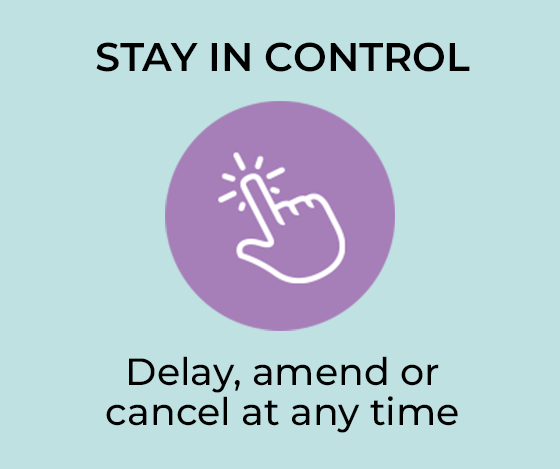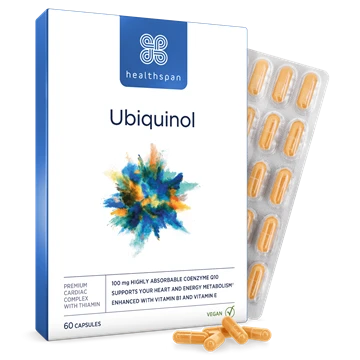If there were a supplement that could address fatigue, provide more energy, help look after heart health and blood pressure, improve exercise performance and recovery, support immunity and a healthy metabolism, and even help slow age related decline, you would want to know about it. Those benefits are why ubiquinol has attracted over 2,000 scientific publications and more than 90 clinical studies.
🕒 3 min read
Ubiquinol is the reduced, active form of coenzyme Q10 (CoQ10) that your cells can use directly. It plays a central role in energy production and cellular antioxidant protection, which is why the heart and muscles—our highest energy-demand tissues—depend on it so strongly.
What is ubiquinol?
CoQ10 exists in two forms in the body: ubiquinone (oxidised) and ubiquinol (reduced). Ubiquinol is the body-ready antioxidant form that participates directly in energy production. While the body can convert between the two, our ability to maintain optimal ubiquinol levels tends to decrease with age and sustained stress.
Ubiquinone and ubiquinol at a glance
| Feature | Ubiquinone | Ubiquinol |
|---|---|---|
| Biological role | Oxidised form of CoQ10 | Reduced, active antioxidant form |
| Primary contribution | Electron transfer in the respiratory chain | Energy production plus antioxidant protection |
| Use by cells | Converted to ubiquinol as needed | Ready to use |
Why mitochondria matter
We exist on energy produced by tiny factories in our cells called mitochondria. Maintaining healthy mitochondrial function is crucial across the body, particularly in high-demand organs like the heart, brain, liver and muscles.
Quick fact: the heart has one of the highest mitochondrial densities of any organ, which is why it depends so strongly on CoQ10 status.
How ubiquinol works
Antioxidant support: helps neutralise free radicals produced during normal metabolism and physical exertion.
Energy production: participates in making ATP, the molecule every cell uses for energy—especially important in heart and skeletal muscle.
Cellular protection: supports membrane stability and helps maintain normal function under everyday oxidative stress.
Ageing, stress and lower levels
The body’s production of ubiquinol decreases with age and with prolonged lifestyle and environmental stressors. Our capacity to convert ubiquinone to ubiquinol also declines, contributing to lower cellular energy. This is one reason why adults over 40 often consider CoQ10 or ubiquinol supplements.
What can supplementation achieve?
💓 Energy and heart function
Daily CoQ10 has been associated with improved cardiac pumping efficiency and fewer major adverse cardiovascular events in people with heart failure.
💊 With statins
Statins can lower circulating ubiquinol levels, which may be linked to tiredness and muscle aches. Supplementation can help restore CoQ10 balance — always follow your prescriber’s advice.
🦠 Immunity and recovery
Supports energy production in immune cells and provides anti-inflammatory properties that may assist post-infection recovery.
🧠 Cognition and reproductive health
Research suggests potential benefits for aspects of memory and processing in cognitive decline, and support for reproductive health in younger adults.
Who might need extra ubiquinol?
Lower levels are associated with ageing, decreased dietary intake, higher metabolic demand (including frequent intense exercise), type II diabetes, impaired immunity and conditions affecting the heart, circulation, nervous system and liver.
How to take ubiquinol (and safety)
Ubiquinol is generally well tolerated. For intakes above 100 mg daily, split into two or three doses with meals for comfort and absorption. People on warfarin should consult their anticoagulation clinic or prescriber, as a small number have reported a slight decrease in warfarin effectiveness with CoQ10 supplements.
Ubiquinol
The body-ready form of CoQ10 that supports heart energy, performance and healthy ageing
- Highly absorbable form of CoQ10 ready to use by your body
- Supports normal heart function and energy metabolism
- Contains vitamin B1 for normal cardiac function
- With vitamin E to help protect cells from oxidative stress
- Ideal for those aged 40 plus, active adults and statin users













